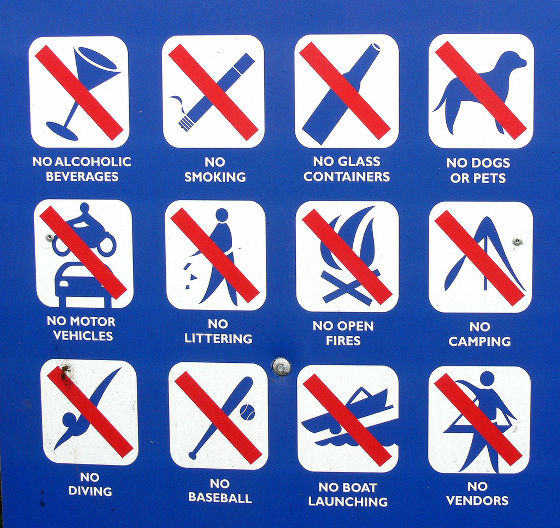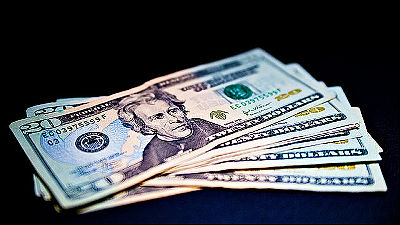Three rules for making a company a great company

ByNotforsnowboard
A lot of managers have published "rules to make a company successful", but what people are saying is varied, and many advice is difficult to practice. thereHarvard Business ReviewSurveyed and discovered three laws common to successful companies "Three Rules for Making a Company Truly Great"is.
Three Rules for Making a Company Truly Great - Harvard Business Review
http://hbr.org/2013/04/three-rules-for-making-a-company-truly-great/
The three laws discovered by Harvard Business Review are "Raise the quality before you compete at price(Competing with rivals in terms of price) ""Think about your earnings before considering costs(Prioritize ways to increase earnings rather than considering cuts in costs)There are no rules other than the two mentioned above"about it.
The three rules are commonplace as a matter of course, and may be reflected in something that can not be said as a strategy. However, these three basic concepts have supported the great companies for many years. How did corporate leaders have accepted these? It is impossible to know that up to that, but tomorrow's leaders can use the rules to expand their possibilities. As a result, Harvard Business Review summarizes examples of companies that succeeded in accordance with the law and examples of companies that have raised their average earnings.
In addition, this survey investigated more than 25,000 companies that ranked active from 1966 to 2010 by database,Return on assets(ROA), and evaluated the strength and stability of the company. As a result, we succeeded in dividing companies with good grades into two categories. One is a "miracle company" with the top 10% of the 25,000 companies obtained from the ROA, the other one is 20 to 40% of the top and has long-term achievements "Long runner "A company. Harvard Business Review called companies that fall into these two categories, and for the purpose of comparison, we also defined the companies with average grades. Of the 25,000 companies, 174 companies were "miracle companies", 170 companies were "long runners.
◆ 01: Increase quality before competing in price

ByTheloushe
Every company should either compete in terms other than prices such as exciting style, brand, functionality, durability, convenience, or whether to compete with price with minimum quality required We encounter aspects of selecting. And as a result of the survey, it turned out that the miracle enterprises overwhelmingly chose the former, and the average enterprises compete with the price. On the other hand there was no clear trend in long runners.
For example, after deregulation of transportation in 1980, the shipping company has to define the scope of service delivery, many companies have chosen a wider range than ever. However, it is "a company of miracles"Heartland ExpressDecided to maintain a relatively small number of customers without expanding the scope of the target area in order to provide reliable and timely service. As a result of this differentiation Heartland Express was able to make a profit of about 10%.
On the contrary, it is the long runner that expanded the service provision area and the rangeWerner Enterprisesis. Werner Enterprises first expanded the service offering region throughout the United States, diversifying the market and preventing services similar to Werner Enterprises from being produced in terms of price and price. However, as the scale of the company expanded, we could no longer accept a less laborious task, and we were able to become a top company, but we could not have been a "miracle company" and stayed in "a long runner" .
Among the three companies, it is "an average company"P.A.M. Transportation Services (PAM). Werner Enterprises is a narrower range of services and customers, but the price is cheap. However, as demand has exceeded supply in the industry, PAM specializes in short-distance transportation,Idle assetI will have to hold. In order to get revenue again, PAM has concluded a contract with targeting car manufacturers. PAM will be called if trouble occurs when the automobile manufacturer carries it. PAM's strategy did not have any problems, but the focus on pinpoint was the same as Heartland Express, but taking the position of "low price" and not following the rules, PAM is "average Harvard Business Review has seen it has become a company.
◆ 02: Think about your earnings before thinking about costs

ByBernat ...
Companies must not only produce excellent value but also monetize it. To raise revenues, there are also companies that earn revenue with an overwhelming difference from rivals with exceptionally high pricing and quantity, but even more exceptional is "to lower costs It is a leader who creates revenue by using it.
For example, a miracle company that became a legend of a discount shop in the 1970sFamily DollarIs one of the companies that succeeded in raising revenue while setting high price. Given that many of the customers of the enterprise are not wealthy, Family Dollar, which succeeded at a higher price than the others, is an amazing company. This company puts emphasis on the items of choice and convenience, stores are settled in a location easy for customers to access, so that only a few items can be purchased from a large number of products. It is obvious that such a selling method costs a cost, but Family Dollar tolerates the high cost and inefficiency, continues high pricing consistently, making decent years of excellent ROA It is maintained.
There are nine miracle companies as "02" samples, of which eight companies succeeded by raising revenues a lot, only one had been able to generate revenue by lowering costs. And six of the eight companies set the price of the product high and the remaining two produce profit by mass production.
One of the two companies that emphasizes volume rather than priceMerckIn the pharmaceutical industry's long runnerEli LillyIt was an aggressive success earlier than it was. Merck refuses to compete at the price of generic drugs in the international market and chooses to follow the rule "raise quality before winning at price". However, the wall of low-priced goods was expensive and I was not able to earn profit quite easily. So we were able to produce a lot of patented drugs with effective effect and realize high ROA.
◆ 03: There are no rules other than "01" and "02"

ByVicki & Chuck Rogers
This can be said to be free as well as being an uncomfortable truth. However, in pursuit of profit, there should be exceptional rules other than "01" and "02". Other factors that determine the profit of the company are various, such as human resource development, leadership style, corporate culture, compensation system and so on. There is no doubt that these factors have important implications for corporate performance. However, we could not find a consistent pattern for these factors.
Despite changing important factors related to earnings, some companies have continued to earn excellent revenue. The reason is that we kept observing the above two rules. In other words, a company that gains top performance has nothing to do with low-price competition, has already acquired a way to earn revenue, and can select all other factors.
In order to become an excellent company, in order to use these rules, it is necessary to first clarify the position of your company in corporate competition and the means to earn revenue. And then, when you have to devote resources limited to two matters that contend for priorities, think about which one to raise non-pricing elements, high price setting and choice to produce a lot.
If most of the plans you do in terms of management are "cost savings", the reforms and efforts you do will be in vain. But if it is to raise the level of customer service competing with rivals, the means and purpose are interdigitated. Just by reducing costs the company does not make great in a real sense. Please point out that if the company gets lost due to short-term cost cuts or raising investment, it will make the company 's most desired' improvement '.
Related Posts:
in Note, Posted by darkhorse_log







